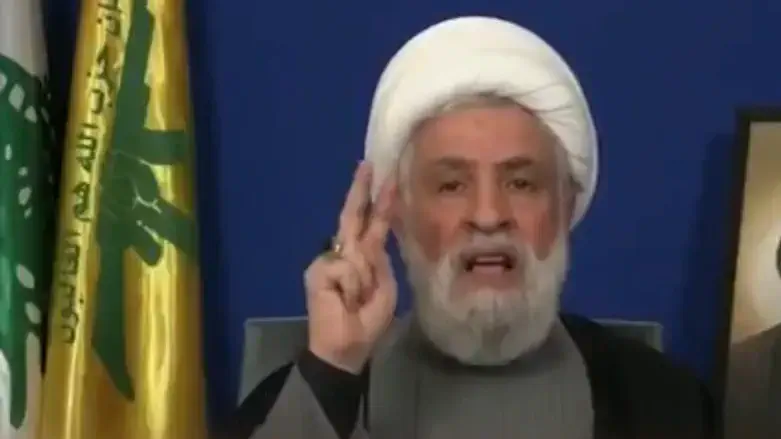
Hezbollah Secretary General Naim Qassem delivered an address on Wednesday in which he discussed attempts to reach a deal with Israel.
He said in his speech that "Israel struck central Beirut when it eliminated Mohammed Afif, and therefore it should expect an attack on central Tel Aviv.
"We had two campaigns in Lebanon, and for 11 years we assisted the Gaza Strip." He admitted that Hassan Naserallah's elimination "confused Hezbollah," but the organization "has returned to itself in all areas. This was a very painful blow, but we will keep standing."
He further stated: "When we launch missiles from Maroun al-Ras at Haifa, it means that our men are deployed across southern Lebanon and have an influential presence. The launch of rockets and UAVs is increasing, and hundreds of thousands of Israelis left their homes. These are the results of this war and confrontation. Even the Israeli Foreign Minister Gideon Saar changed the goals: 'Our goal is not to eliminate Hezbollah.' They moved to the second stage because they want a war that would give them everything, and they can't get it.
"The battlefield will decide, and the results depend on the battlefield. There are two battlefields: the launch of UAVs and missiles into Israeli territory and the combat in the field. Hezbollah can continue at this rate for a long time. We don't have a permanent order, each time we attack a new community and base, until we reach the furthest bases and communities. All this is part of a plan in which we coordinate the launches with the fighters. Israel will not be able to defeat us and force its conditions on us."
Regarding the negotiations, he stated: "They say there's a proposal for the negotiations. I was given this proposal and we read it well, we made corrections to it, and Nabih Berri has corrections for it. These corrections were submitted to US Envoy Hochstein, and we spoke to him about these points. We decided not to discuss this with the media, not the wording of the agreement, and not our corrections. We are leaving these conversations for later to see if there will be a result from this whole process or not. The Israeli side expects to get from the deal what it can't get in the field, and that's not possible.
"Our corrections show that we agree with this path of indirect negotiations if the other side wants it. They told us the other side is interested, so let's see. Will the negotiations lead to a ceasefire quickly? No one can ensure it since it depends on Netanyahu's seriousness. Our negotiations depend on two things: the end of the aggressions in a non-comprehensive manner, and the assurance of Lebanese sovereignty, that is, that Israel can not operate in Lebanon whenever it wants."
